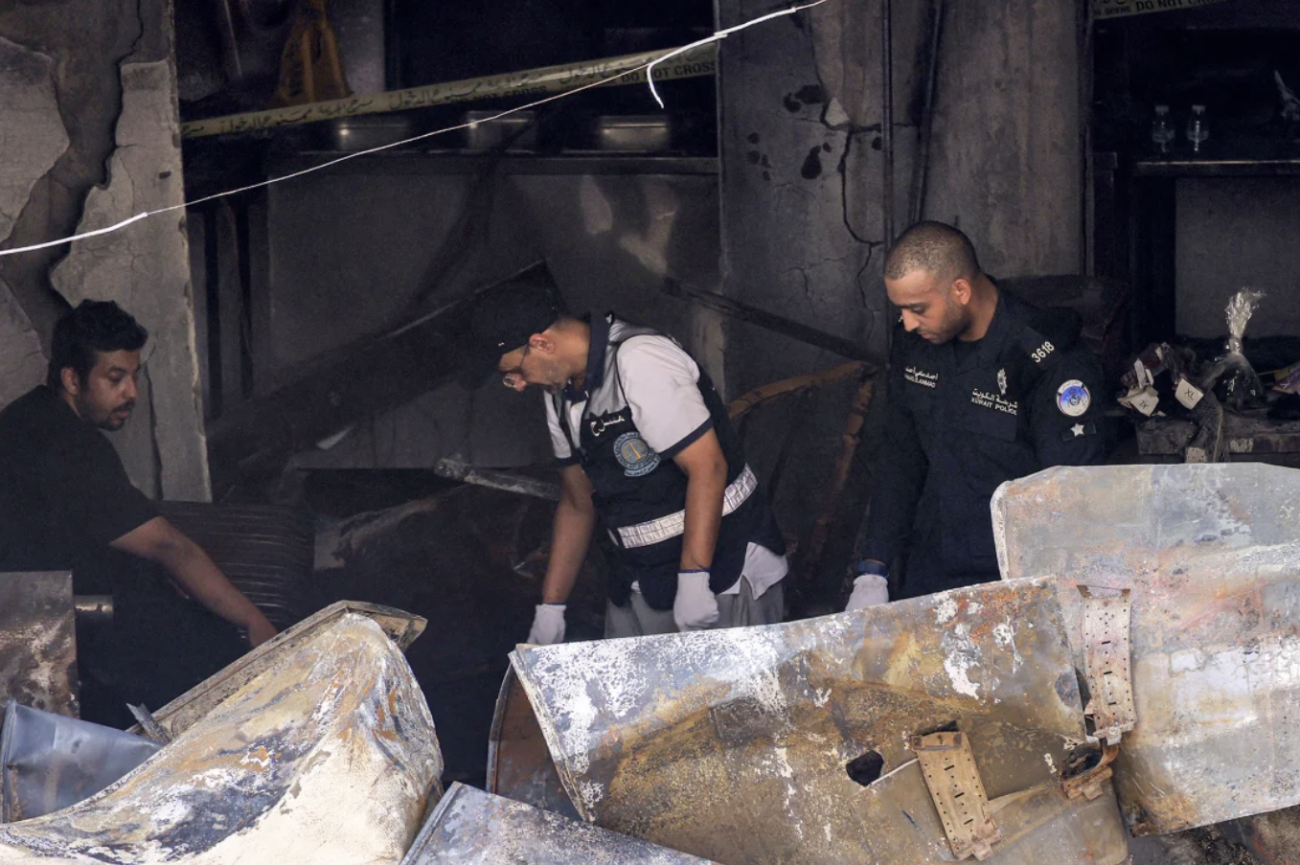CCA expresses condolences to the families of Asian migrants died in the devastating fire in the Mangaf area in Kuwait

The Christian Conference of Asia (CCA) expressed deep sorrow at the loss of lives of 49 Asian diaspora members in the devastating fire in a migrant workers’ accommodation building in the Mangaf area in southern Kuwait that resulted in the death of at least 49 migrants from India and the Philippines.
In a condolence message issued by the CCA, General Secretary Dr Mathews George Chunakara stated that the CCA expresses its deepest condolences and sincere sympathies to the families of the deceased, praying for a speedy recovery of the injured.
“The loss of the families of the victims of the Mangaf tragedy is heartbreaking and beyond words. Our thoughts and prayers are with all those who have lost their near and dear ones. We pray that the injured will recover at the earliest. May divine grace strengthen and console all family members, friends, and their coworkers in the destination country”, added Dr Mathews George Chunakara.
“We share the grief of the family members of the departed who are yet to reconcile the loss of their dear ones and of all those who are injured and struggling to recover from the physical and mental torment” stated the CCA General Secretary.
As of now, forty-two of the dead were reportedly Indians and three were from the Philippines; most of those who died were aged between 20 and 50.
Among the Indians, 24 were from the south Indian state of Kerala, seven from Tamil Nadu, two each from Andhra Pradesh and Odisha, and one each from Bihar, Madhya Pradesh, Karnataka, West Bengal, and Uttar Pradesh, and they include engineers, accountants, supervisors, drivers, and other professionals. Filipino and Nepali workers are also among the injured.
The CCA General Secretary added that “The Mangaf tragedy in Kuwait is not an isolated event. These kinds of tragic incidents are result of a protracted apathy towards protecting the rights of migrant workers, their safety, security and working conditions in destination countries.
Although it is reported as an accidental blaze, and the investigation into its causes and details is underway, the Mangaf incident has once again proved the need for ensuring safe working and living conditions for migrant workers in destination countries.
The international consultation organised by the CCA and held in Dubai, UAE from 31 May to 3 June 2024) on ‘Asian Diaspora in Transition: Migration and Human Trafficking to West Asia (Arabian Gulf)’ discussed the deplorable living and working conditions of the migrant workers in destination countries in West Asia, including Kuwait.
Two-thirds of the Kuwaiti population is made up of foreign workers and the country is highly dependent on migrant labour, like several other Arabian Gulf countries. CCA has expressed concerns over the living and working conditions of migrant workers on several occasions.
The Asian Ecumenical Migrant Network has been initiated by the CCA as part of its ongoing programme for advocacy on the rights and dignity of Asian migrants in destination countries within and beyond Asia.










